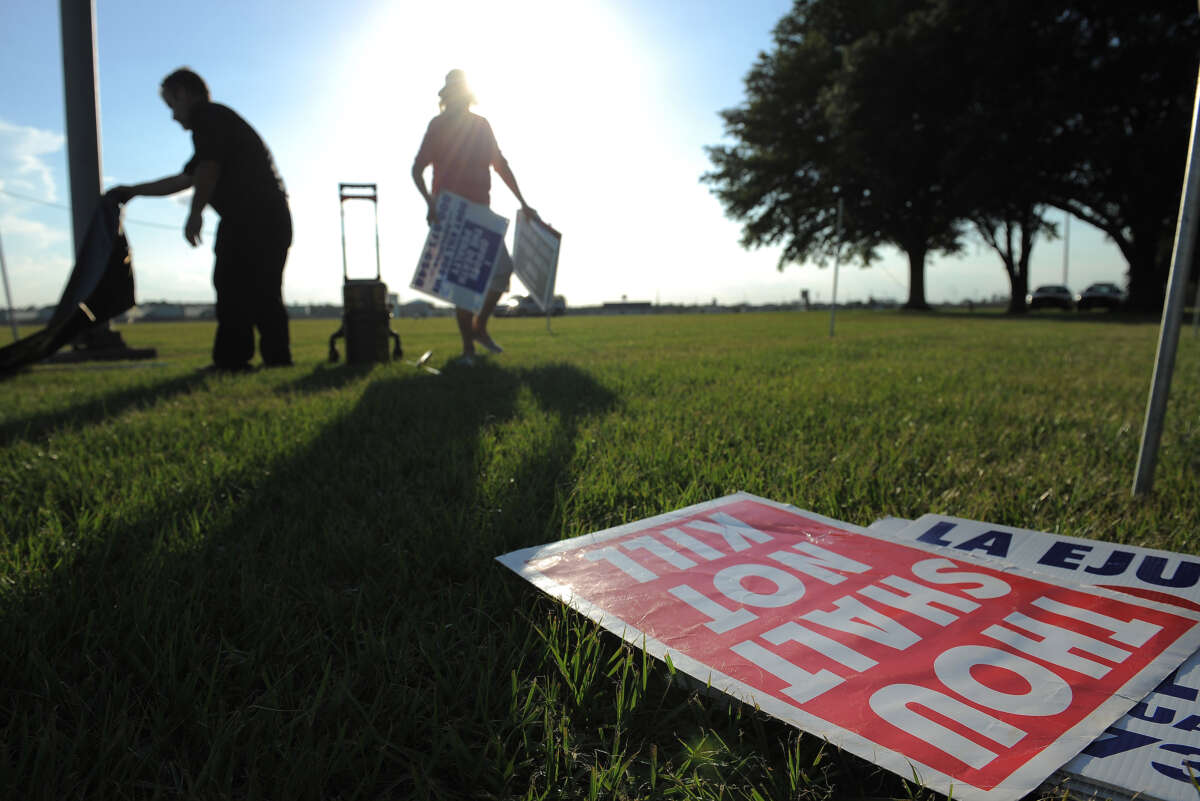Support justice-driven, accurate and transparent news — make a quick donation to Truthout today!
Republicans in the Florida legislature have proposed ending the requirement for unanimous jury recommendations in capital murder cases before a person can be sentenced to death by the state.
Such a requirement didn’t exist until 2016, when the federal Supreme Court ruled that majority-based recommendations to judges on the death penalty gave too much power to judges. The state legislature reacted swiftly to that ruling, passing a new law allowing judges to sentence people to death if 10 out of 12 jurors agreed on the matter, but the state Supreme Court found that law unconstitutional as well, stating in late 2016 that unanimous jury decisions were needed to impose a death sentence.
Since then, however, the state Supreme Court has undergone a dramatic rightward shift, largely as a result of appointments by Republican Gov. Ron DeSantis, who took office in 2019. In 2020, the state Supreme Court overruled its previous decision, finding that unanimous juries weren’t needed (though it kept the requirement in place for the time being, saying that the state legislature would have to actively pass a new law in order to enact the change).
Justice Jorge Labarga, who dissented in that case, called it “a giant step backward,” and a removal of “a significant safeguard for the just application of the death penalty in Florida.”
This week, state Rep. Berny Jacques (R) and state Sen. Blaise Ingoglia (R) introduced similar bills in their respective houses of the state legislature that would only require eight out of 12 jurors to recommend a death penalty sentence to a judge, just one week after DeSantis signaled support for such a change.
The Florida governor, speaking before the Florida Sheriffs Association, said that he wanted to see a system where a “super-majority” of jurors would decide on the death penalty, rather than a unanimous jury. “Maybe eight out of 12 or something,” he said.
Since the federal reintroduction of the death penalty in 1976, Florida has executed 99 people. But DNA and other post-trial evidence have exonerated around 30 people during that same time period — an alarming statistic that suggests that, for every three executions the state carries out, one person has been wrongly convicted.
It’s likely that the state will put more people to death in the coming years. Florida currently has 323 people sitting on death row — more than any other state besides California, which has a moratorium on the death penalty.
Sister Helen Prejean, an advocate for abolishing the death penalty, reacted to DeSantis’s call for lowering the threshold needed to sentence someone in Florida to death.
“Given all the problems, errors, and injustices in the criminal legal system, making it easier to impose a death sentence is a very bad idea,” Prejean said in a tweet. “If prosecutors can’t convince a jury to vote for death, perhaps the solution is to end capital punishment rather than change the rules.”
An organization called Floridians for Alternatives to the Death Penalty also spoke out against state-sanctioned executions. “Florida’s Death Penalty is broken. It’s time to end it,” the group said in a tweet, just a few hours after the bill to change death penalty standards was submitted in the state House of Representatives.
A terrifying moment. We appeal for your support.
In the last weeks, we have witnessed an authoritarian assault on communities in Minnesota and across the nation.
The need for truthful, grassroots reporting is urgent at this cataclysmic historical moment. Yet, Trump-aligned billionaires and other allies have taken over many legacy media outlets — the culmination of a decades-long campaign to place control of the narrative into the hands of the political right.
We refuse to let Trump’s blatant propaganda machine go unchecked. Untethered to corporate ownership or advertisers, Truthout remains fearless in our reporting and our determination to use journalism as a tool for justice.
But we need your help just to fund our basic expenses. Over 80 percent of Truthout’s funding comes from small individual donations from our community of readers, and over a third of our total budget is supported by recurring monthly donors.
Truthout has launched a fundraiser to add 340 new monthly donors in the next 5 days. Whether you can make a small monthly donation or a larger one-time gift, Truthout only works with your support.
